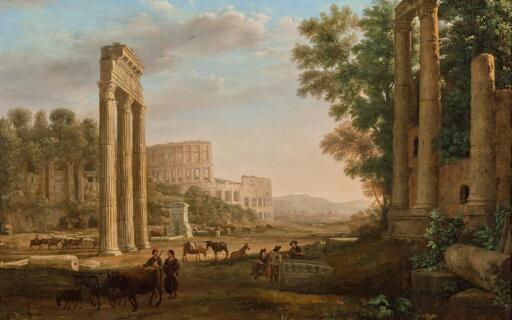The conclusion fails to fully metabolize the lessons presented in the rest of the article.
Collapse can happen. It carries costs and victims but also benefits and beneficiaries. In a globalised, interconnected world facing threats such as nuclear weapons, a future collapse is likely to be far worse, with far higher costs. Many states today are also far more benevolent than those of the past. While the fall of Somalia may have been good for much of the populace, the same is not likely to be true if Denmark fell apart. Think of it as the Somalia-Denmark rule: the more helpful a state is, and the more citizens rely on it, the worse the result if it collapses.
The empire, being globalized and interconnected, does not have a single Rome. It has many Rome-lets like Denmark, where a very small percentage of the world’s population actually lives. By siloing the world into nation-states, rather than examining the empire as being globalized and interconnected, they fail to make the connection to how the world will drastically improve when the empire falls. If Denmark fell apart this would have major implications for the empire, implying a global collapse.
They take this critical view of history and then seemingly draw no lessons from it that can be applied to our world today.
the examples they chose to represent benevolence is troublesome.
That too - their critical read of history basically dismisses the historical texts and inscriptions and monuments as being propaganda for the ruling class of the period, thus misrepresenting collapse, and then they just don’t apply this to our world today.
i want to believe that the author is well intention-ed and misguided; but their usage of terms like "1-per-cent " and “99 per cent” and the “benevolent societies” feels too much like liberal coopting and makes me suspect that they’re trying to push a pro-american-empire agenda.
That’s the thing about propaganda and cultural hegemony (well, one of the things anyway) - the author doesn’t necessarily have to have a conscious agenda in order to reaffirm and reproduce the dominant narrative which is based on the agenda of the ruling class. They propagate the agenda just by being steeped in the cultural narrative and taking it as “common sense” without even thinking to analyze it with anything near the kind of scrutiny they apply to other historic cultures. They probably think they’re being strictly objective even as they push a very real but unrecognized liberal agenda.
The modern examples fundamentally misunderstand the premise, the empire didn’t collapse, Syrians and Iraqis had less violent places to go, what if they hadn’t? tbh no idea what the fuck happened in Somalia that warrants some investigation. I don’t like referring to the Soviet Union or Yugoslavia as an empire but as examples of societal collapse and reorganization that does not support this essay’s thesis at all…
WRT Rome, the Black Death, dynastic changes in China, well it’s really easy to argue this point when you just shrug off massive mortalities and assume disappearing populations successfully resettled in the hills. For the egyptian example of commoners becoming ‘richer’, there are many examples of decreasing material sophistication in collapse periods. i find it hard to justify life being qualitatively ‘better’ for a commoner in sub-roman societies losing access to clean water, stone buildings with tiled roofs, roads, quality ceramics, utinsils, etc., and it’s not like obligations of tax disappeared, they just might’ve paid less to smaller strongmen
I don’t like referring to the Soviet Union or Yugoslavia as an empire but as examples of societal collapse and reorganization that does not support this essay’s thesis at all…
I think the difference between this and these historic ones is that the empire didn’t really “collapse”, it was taken over and looted.
Another factor here is that the soviet union was actually beneficial to the people and existed for the people, these other empires? Parasitic.
It seems logical to me that a state that has progressed on from class struggle might be a significant outlier to this theory. The soviet union wasn’t parasitic unlike the class arrangements of these other empires. Its collapse did not result in wealth redistribution in the people’s benefit, but to their detriment, the wealth of the people was redistributed to the new parasitic ruling class rather than from the ruling class to the people.
is it really accurate to assert that exploitative empires were not ‘looted’? yes much portable wealth from elites was taken which we shouldn’t count, but things like the grain dole, large scale irrigation, the grand canal in china, do effect general welfare imo
To an extent yes but the digitisation of currency compared to physical things probably plays a significant role in the efficiency of the looting. Physical looting is going to spread out much more than modern financial looting.
yes I think there’s something to those modern lootings being more comprehensive, and perhaps permanent because it was secured in the empire rather than stored locally.
it’s certainly not 1:1 i just want us to calibrate our thinking around imperial collapse not as a force of nature or good thing, but an issue to be fought over and win popular support about
i find it hard to justify life being qualitatively ‘better’ for a commoner in sub-roman societies losing access to clean water, stone buildings with tiled roofs, roads, quality ceramics, utinsils, etc.
The big thing to remember is: those werent things owned by the slaves within the empire or the subjugated tribal peoples within and on the empire’s borders. Those were the things the slaves were exploited and the natives dispossesed for Roman citizens to enjoy.
For the people who are not the beneficiaries of urbanism (the rural masses, the poorest strata of urbanites who are legally not allowed to leave their work) they do not notice e.g. the quality ceramics disappear bc they never had them (and in fact, they may now work less bc either their master is dead, lost their legal control or simply can no longer access the fine goods he was forcing them to work for anymore).
A very important thing to remember wrt roman britain is also that the roman part was the most settler-colonial of all rome’s settlercolonies. The collapse of roman britain so rapidly is in large part bc of wealthy romans fleeing the sinking ship as their supply networks of wine and olive oil and the like dried up. Wrt big stone buildings, the fact of the matter is people dont tend to want massive dwellings if a) they spend most of their time outside anyway and b) have to clean and maintain it themselves instead of having servants.
Wrt sanitation especially, it must be pointed out that sanitation only becomes an issue if you have massively concentrated populations (i.e. cities). That is what creates the massive pollution and extraordinary demands for food and water that require complex infrastructure.
We should be very wary of taking “decreasing material sophistication” for "decreasing quality of life for the workers producing the sophisticated materials (and the workers supplying them with food). Usually in empires and class societies generally “labour produces wonderful things for the rich—but for the worker it produces privation. It produces palaces—but for the worker, hovels.”
You are mistaking ‘quality’ as meaning expensive or exclusive. The normal Roman ceramics that ordinary people in the empire ate off and carried water in was higher quality than post-Roman examples. In Britain’s case they literally stopped using pottery wheels. Having well made vessels for cooking, storing, and transporting is a direct material concern for poor people.
It shouldn’t be assumed that the loss of an imperial figurehead ushered in much masterlessness, where rural roman elites remained so did their tyranny. The foederati kingdoms did not oppose slavery and often made romans second-class, roman poor went from having less protections than the rich to having even fewer than other types of poor people.
You also shouldn’t interpret stone buildings as a rich class signifier or oversized. Poor people did and still do live in stone (though my bad leaving out brick, those were important too and also declined in quality).
on sanitation, like there still were people in urban concentrations, they just stopped having clean water. That’s not good!
It’s quite literally not a myth; Romano-Britain was a total collapse accompanied by massive population decline, warlordism, disappearance of cities and the obliteration of literacy, same for most of the western empire, whatever limited mobility and sanitation options people had disappeared, that is not good for the 99 percent
The collapse of West Asia brought on by the Mongol Conquests and their almost immediate fracturing killed the majority of the population and left entire regions blasted wastelands, West Asia didn’t recover developmentally or demographically until the late 18th century and in some crucial areas it never recovered
The author mentions the Bronze Age Collapse; Ugrait was completely destroyed, it’s population massacred, famine decimated Syria, the entirety of the North Mediterranean was depopulated, literacy disappears and the birth of far more vicious empires like the Assyrians begins
The Inca, the Aztecs, the Maya, Cucuteni–Trypillia, the Indus Valley, the Minoans; there is no interpretation of the data that asserts the 99 percent benefited from the collapse of these civs, all we see in these cases is desolation, disease and death followed by centuries or even millennia of far more oppressive social structures emerging in the aftermath
The author is lost in the vision of their initial premise, they can’t even see the data in front of them, or they didn’t bother to look
This is why I posted it here. I’m not broadly knowledgeable about history. I knew I’d get a plurality of takes. I was forwarded this and wanted to see what others thought.
the history is written by people who can pay historians - paraphrasing someone.









